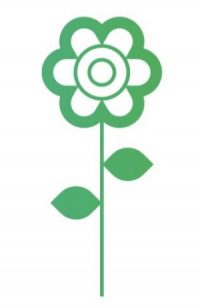
We’re keen to work with schools to think about the implications of underdeveloped sensorimotor systems on a child’s journey through education. We’re always happy to run in service training sessions or work with schools in building their expertise in supporting children who have experienced developmental trauma. If you’d interested in talking to us more about this work, please contact us on info@bussmodel.org
There are many things can contribute a child not having the kind of early experiences that facilitate the stepped progression through predictable stages of motor and emotional development that allow children to progress towards emotional regulation and learning. Not progressing through these stages of development at the right time can impact later stages of development.
BUSS® began as a clinical intervention, recognising the importance of addressing gaps in early development before / alongside consideration of relational or psychological therapies. It is increasingly being considered within education settings, where there is growing understanding that, without successfully negotiating early stages of development, it’s much harder for children to engage with and succeed in education. At the moment, the focus of the BUSS® in Education work is on an early years programme– working with children from nursery through to the end of key stage one / Primary 2. This can be run with children and their parents on a 1:1 basis or as a small group. We are also happy to support schools to work with older children using BUSS® on an individual basis.
Training in BUSS® for schools is designed to build on trauma informed practice. If BUSS® is the starting point for a school, training can be adapted to include an understanding of the impact of trauma on the developing brain and implications for education.


It can be helpful, if a school is considering either the BUSS® in Early Years Groupwork Programme or being supported to use BUSS® with an individual child, to have a whole school twilight training. This 1.5-hour session introduces the school team to BUSS®, building understanding of the role of the earliest relationships in a child’s life in establishing a foundation of bodily regulation. Good bodily regulation (a child having enough core stability to be able to sit on a chair or the carpet, feel confident when they’re moving and able to do things like jump with both feet off the ground) and these forms the foundation for the development of more complex motor skills (like being able to write or focus on what is being taught rather than having to concentrate on sitting or not falling over). This platform of good bodily regulation allows children to begin to be able to manage friendships and emotional regulation, both of which are steps towards learning and cognitive tasks.
The training supports staff to consider children in their setting, thinking about their foundation sensorimotor systems and how this impacts their capacity to function in school. It can be delivered in person for schools local to us, or remotely.
This 12-week groupwork programme is for children aged from 3 – 6 years and their parents or carers. BUSS® is most beneficial in settings where there is already an existing culture of trauma informed training and practice, where experienced educators are working alongside children and their families where there has been some disruption to the earliest development of the child.
Working with parents or carers, the weekly group focuses on building bodily and emotional regulation. Parents and carers are encouraged to do the activities from the group at home, and school staff can supplement the work of the group in sessions within school.
For schools local to us, we can work alongside you to run these groups, building the skills and expertise of your staff through training and supervision as the group progresses. For schools that are further afield, at least one teacher must be BUSS® Level One trained and then have completed a BUSS® in Education Groupwork training. Most settings choose to have at least 2 members of the team trained at BUSS® level one.
Further, many of the education settings we currently work in have chosen the SENCO and another key member of the pastoral team to become BUSS® Level One trained and to lead the BUSS® groupwork programme. This works well when thinking about BUSS® and its contribution as a focused intervention in raising outcomes for children who have experienced disruption in early childhood development.
Supervision has long been an integral part of clinical practice and its value is increasingly being recognised in education. There are 4 sessions of supervision embedded within the 12-week groupwork programme. These give the opportunity to discuss the progress of children in the group, build understanding of their developing foundation sensorimotor systems and think about grading and differentiation of activities within the group.
For schools that we’re not running the groups alongside, it’s useful to first identify BUSS® Group Work team, arrange for Level One training and then to identify children and families for the group.
Once enrolled on the BUSS® in Education Groupwork training programme, schools will be sent the BUSS® in Early Years handbook, which is the manual for running the group. It contains detailed plans for each group, a description of resources needed, pre and post group measures, letters for parents and carers and detailed information about grading / differentiating activities according to the needs of individual children.
The groupwork training is a 2-stage process. The first part of the training is embedded in the BUSS® in Early Years handbook and takes 4 -5 hours to complete. There are recorded sessions for staff supporting the group as well as sessions for group leaders. This part of the training can be done in sections and must be completed before the part two. There is a knowledge check for group leaders between parts one and two.
The second part of the training can be delivered remotely or in person. This is a 3-hour training which builds on the preparatory work completed in part one. It offers the opportunity to think about the individual children and families coming to the group, review screening questionnaires and ‘walk through’ the first sessions of the group.

Grimes Dyke Primary School in Leeds served a disadvantaged part of the city; 51.4% of the pupils were entitled to free school meals, compared to 23% nationally. While their pupils were not in care, they had often experienced chaotic, disrupted lives that meant that they had missed out on many movement experiences that their bodies needed to be able to meet the demands of school.
After discussions with their head teacher, the BUSS team agreed to focus initially on two year groups: Year One and Year Six. A training day was staged for all of the staff who worked with those year groups, and Sarah Lloyd joined classes on different days in the gym, to look specifically at core strength, stability, upper body strength, bilateral integration and sequencing and the extent to which children’s movements were smooth, well-modulated and well-coordinated. From those sessions it was identified that eleven children in each group could benefit most from a focused intervention.
With the ordering of a small amount of equipment and plans from Sarah for class- and group-based interventions, the school began work training staff in the BUSS model and helping those children most affected acquire therapy.
Sarah’s reflections on this:
Louise Hill, Headteacher at Grimes Dyke Primary School, reflections on the intervention:
In Sarah’s NHS work, commissioned by Jane Mischenko, Children’s Commissioner, she has set up a partnership with Leeds Virtual School and Meadowfield Primary School in Leeds to work with children who are looked after before they start school.
The virtual school funded a pilot of early intervention BUSS programme for pre-school children who are looked after, working in partnership with the virtual school and Meadowfield Primary School. We are now a small team including specialists from education and the therapeutic social work team working from Meadowfield.
Piloting this work has provided an opportunity to:
Children were followed up into their host schools and support given to the schools to continue the work on building sensorimotor systems.
We’ve currently run one cohort of this intervention, and evaluation is being conducted by University College London. Initial results look promising, and funding has been agreed for this project to continue, lowering the starting age of the children to two years. It is hoped that this work could be developed in other areas, offering a combination of training and joint work.
Alex Clark’s (Associate Headteacher at Meadowfield School) reflection on the intervention:
Jancis Andrew’s (Head of the Virtual School) reflection on the intervention:
If you would like to search for anything on our website, please type here and click ‘search’